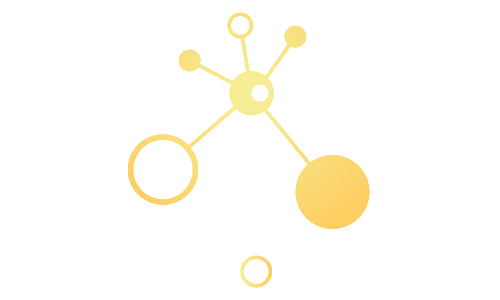Your no-code, high-fidelity SaaS platform for AI-driven disease simulations.
Translational biology at your fingertips to guide your next-best experiment.
Determine target efficacy in seconds.
BioTarget™ Scoring Tool
Disease models to predict target efficacy.
Omic Signatures™
Predictive biomarkers to identify patient responders.
Data Exploration Tool
Versatile data visualization suite to transform complex data into actionable biological insights.
Library of Disease Models
-
-Breast Cancer
-Colorectal Cancer
-NSCLC & SCLC
-Prostate Cancer
-Melanoma
-Diffuse Large B Cell Lymphoma (ABC, GCB)
-
-Alzheimer’s Disease
-Parkinson’s Disease
-ALS
-
-Tissue Repair
Don’t see your therapeutic area here? Simmunome can develop disease models for your specific indication. Check in regularly with us to see our growing library.
Space missions don’t launch without simulations. Clinical trials shouldn’t either.
We create simulations that capture disease biology to move your pipeline forward, with confidence.
The translational platform that gets your drug to market faster.
BioTarget™ Scoring Tool
Precise models to map disease pathways and elucidate mechanisms of action.
Quantify the efficacy of your target or combination of targets.
Derive insights to drive key decisions for drug development.
Identify previously uncharacterized molecular interactions.
Rank drug targets in your pipeline and evaluate them relative to competitive targets.
Omic Signatures™
Pinpoint biomarkers linked to disease progression, treatment efficacy, and resistance.
Quantify the efficacy of your target or combination of targets.
Derive insights to drive key decisions for drug development.
Contextualize of differentially-expressed genes or proteins in pathways.
Upload data and have results in seconds.
Data Exploration Tool
Seamless upload, download, customize in seconds.
Intuitive data analysis interface for actionable insights.
Streamlined data pre-processing, analysis, and visualization.
Box Plot
Heatmap
Line Plot (CV)
Line Plot (Variance)
Volcano Plot
“Working with Simmunome has been a turning point for our target validation strategy at Espoir Biosciences. As we explored a novel therapeutic target for ALS, we needed deeper insight into its biological context and relevance to key ALS-related mechanisms. Simmunome delivered a comprehensive, systems-level analysis that went beyond what we could have achieved internally, predicting key interactors, comparing our target to known ALS-associated genes, and providing tissue- and genotype-specific data that helped shape our research priorities. Their insights helped us guide experiments that align with the most promising biological pathways. We truly appreciated their scientific rigor and the strategic value they brought to our project.”
— Constantin Bretonneau, CEO & Co-Founder of Espoir Biosciences, (a spinoff of CHUM)
Why companies choose Simmunome.
Utilizing Simmunome's platform enables clients to harness precision medicine, data integration, and advanced analytics, accelerating research breakthroughs and improving patient outcomes.
Query-Specific Validation
We conduct targeted validation for specific queries—we utilize a separate patient cohort (can be selected by the client) to validate and confirm the model’s predictions within a drug target-specific context.
Lab Validation Support
The model provides efficacy scores and pathway-specific insights to support and streamline preclinical in vitro and in vivo experiments, aiding translational success.
Validation by Explainability
The model predictions are fully traceable to all molecular interactions involved. With full visibility into the underlying mechanisms, domain experts can independently verify findings.
AI Models
AI models boost our algorithm’s capabilities by augmenting the biological knowledge available.
Secured Access
No one can access the network unless they are authenticated. We rely on Auth0 and JWTs to ensure online safety.
Custom Data Integration
Models safely leverage your own custom data to get results targeted for your specific needs.
No-Code
Plug and play platform providing reliable insights without the need for any AI expertise.
Unified, actionable insights for informed decision-making.
Hybrid Approach.
Our unique approach combines mechanistic modeling and ML algorithms. Abiding by biological rules, it surpasses traditional methods and pure data-driven approaches in reliability.
Traceable Predictions.
Enabling researchers to unlock underlying mechanisms of molecular cascades.
Speed & Flexibility.
Development of disease models across various therapeutic areas, allowing for cross-disease comparisons and quick adaptation to the most promising indications.
+1.3M
Dynamic molecular interactions.
11
Off-the-shelf disease models, readily available.
78%
Of potential failures are detectable at an at an early stage using our tools.
$1.4B
Potential savings, per successful drug.
Collaborate with Simmunome.
Whether you need a turn-key solution for autonomous analysis or a tailored approach, Simmunome partners with you to deliver fast, accurate results, empowering confident go/no-go decisions for your pipeline.
Service
White-glove service for customized solutions.
SaaS
Customer-led upload for autonomous decision making.
You Asked, We Answered
We put together this FAQ video to answer some of the most commonly asked questions about our technology.
🔍 Interested in learning about how AI can make drug development more efficient?
🧬 Curious about what type of clinical data is required?
🔬 Wondering when is the best time to integrate AI in your drug development process?
Simmunome believes in the responsible development of AI to benefit humanity.
Simmunome’s members are trained in the TRAIL program. The training program was initiated and designed under the supervision of Yoshua Bengio, Scientific Director at Mila. The program is aimed at teaching AI researchers to implement ethical, legal and governance considerations in their methodology and practices.
De-risk your clinical development pipeline.
Simmunome dramatically increases your probability of success to get you to market faster, and reduces your R&D costs.







